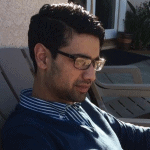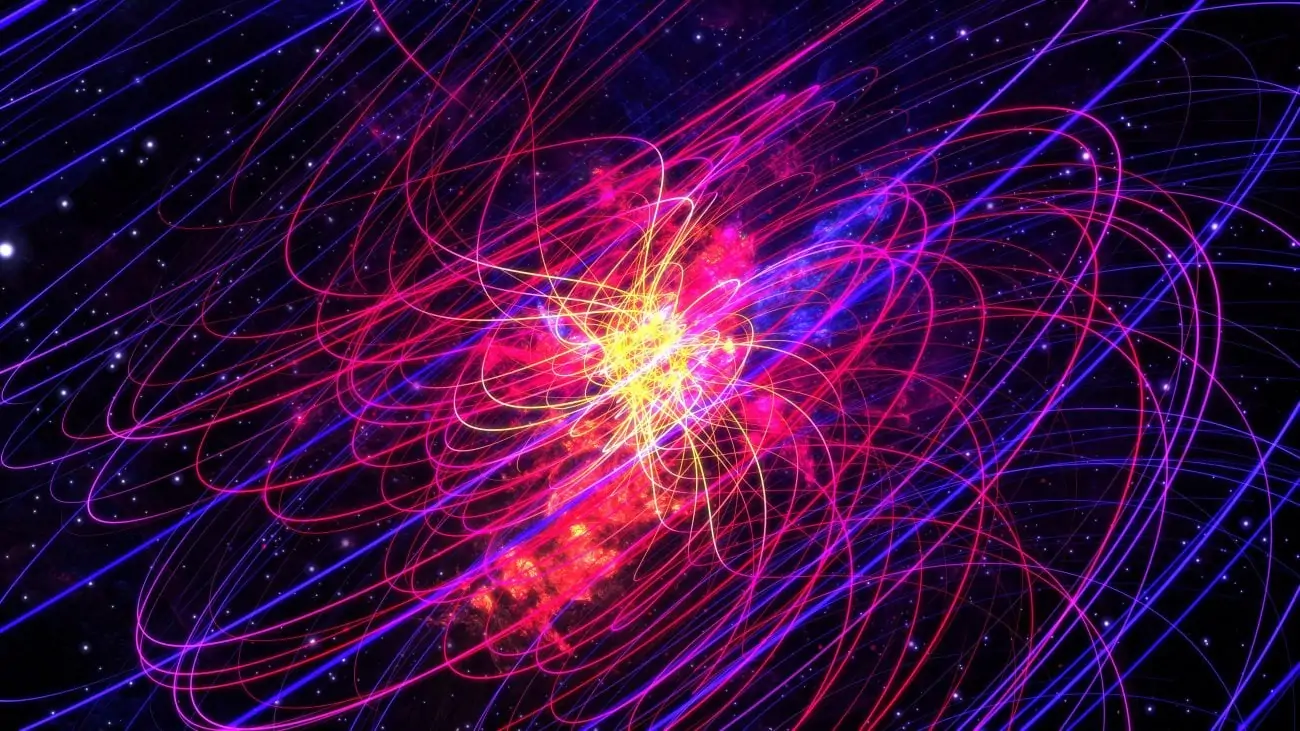“The whole universe is subject to one uniform law, and its constituent parts unite to form a glorious harmony of structure and motion.”
– Hazrat Mirza Tahir Ahmad, Absolute Justice, Kinship and Kindness.
In our harmonious universe, every atom obeys a pervasive plan that brings to fruition all the dazzling structures of the universe. These structures ultimately serve to produce planets like ours, which can harbour life, this being apparent in the very fundamental forces and constants that permeate the universe.
This perfect balance and harmony accords with the principle of ‘justice.’ To be just is to give everyone their due – to ensure everything is in the right place, and that any imbalances are corrected. In the universe’s case, no imbalances can be seen with regards its evident purpose. How such perfection emerged is a major mystery of modern science.
The Holy Quran tells us:
“And the heaven He has raised high and set up the measure, That you may not transgress the measure. So weigh all things with justice and fall not short of the measure.”[1]
As there is an all-comprehensive harmony in the whole universe, so is man – the crown and object of creation – enjoined to maintain a just balance and to treat others with equity and fairness, giving everyone his due, and avoiding extremes. This is known as fulfilling the duties owed towards the Creator (Huququllah) and His creatures (Huququl Ibad).
However, the principles of justice when applied to the realm of human beings includes the aspect of free will. Through their ability to choose, select and decide, human beings have the freedom of choice to do good or evil. While free will represents one side of the trusteeship contract given by God to man, responsibility constitutes its other side. It imposes limits on man’s freedom of choice via divine accountability, motivating man to serve God and His creation out of fear of God’s reprisal and love of mankind.
Similarly, in the economic sphere, the fundamental contractual unit is the transaction. Since it invariably involves at least two parties, the prerequisite to make a balanced and equitable economic transaction is absolute justice (‘Adl). Man’s conduct is bound by considerations of reciprocity and treating other parties with fairness.
Any contract is best explained as a transfer of rights, which is complete at the moment of agreement and governed by moral law. Thus, nowhere else does the golden rule ‘Do unto others as you would have them do unto you’ apply more in economics than in any other field, and this is so because this rule involves an exchange and a transaction.

Economic transactions form the backbone of much of today’s society
In the Holy Quran, the expression of ‘weight and measure’ is frequently connected with trade, pointing to the fact that the economic progress and prosperity of a people lies in honest and fair dealing in business matters. Giving a practical example, the Holy Quran underlines that one of the vices of the people of Midian during the time of Prophet Shu’aibas was that they were dishonest in their commercial dealings:
“And O my people, give full measure and full weight with equity, and defraud not people of their things and commit not iniquity in the earth, causing disorder.”[2]
The problem emerges when the interest of one party from that transaction is abstracted and made the raison d’être of economic activity. If risk, labour and sacrifice is placed on side of the transaction, while the other side merely counts its profit, then economic relations become disrupted. This, in turn, disrupts human relations if left unstraightened, as one party in the transaction gains the upper hand over the other. All this entails considerable frustration, anger, bitterness, and conflict. If this imbalance is allowed to persist, it produces the perfect recipe for economic catastrophe and decline.
Such notably is the case for capitalism. In the tangled tree of mechanisms leading to the current financial capitalist system’s imbalances, one common pathogenic factor plays this role and is almost invisible in economic theory: usury. As long as the financial system is based on this destabilizing factor, it creates instability and tensions between the economic parties in a transaction.
The Capitalist Economic Disorder
Contrary to a popular belief, the practice of usury (interest) has never been a natural condition in human societies, or the inevitable consequence of business. Our monetary and financial system was made up of ingredients and innovations which men imagined as civilizations moved forward.[3] Usury is a conventional economic practice only in the sense that it resulted from human convention and artifice. It was decided upon and worked towards ― no more, no less.
This conventional and practical nature of usury gave it a flexibility of use, and as a consequence money began to be treated as a separate category of commodity besides being a medium of exchange. So in the capitalist economic order, money, like other commodities, has a price and one has to pay its price, namely the interest rate, if one wants to borrow it.
According to Islam, money does not and should not reproduce by itself. The teaching of the Holy Quran on the subject is very clear, and from the onset of Islam until this day, every economic evil which is the creature of interest has been made an economic crime:
“O ye who believe! Fear Allah and give up what remains of interest, if you are truly believers.”[4]
If ‘Ribā’ is the word used in connection with ‘interest’ in the Quran, its connotation is not identical with that of the word ‘interest’ as commonly understood. The concept of Ribā (a literal translation of which is ‘to increase’, ‘to nurture’ or ‘to grow’ in the Arabic language) is vast and includes all types of transactions where profit is guaranteed.[5] Interest precisely falls into this category as in this day and age, whenever a bank makes a loan, it simultaneously creates new money, earning money on the principal and securing it against a real asset.

Natural patterns repeat ― from the orbits of electrons, to the stars of the solar systems. Disorder is apparent as an aberration.
Indeed, in our modern economy, most money takes the form of bank deposits. But how those bank deposits are created is often not well understood. The main method is through commercial banks making loans. Whenever a bank makes a loan, it simultaneously creates a matching deposit in the borrower’s bank account. New money is therefore created. The money lent to the borrower is created out of thin air and the asset bought is used as a collateral as a way for the lender to secure the loan. For a house mortgage, the collateral is often the house purchased with the funds from the mortgage. In other words, there is no such thing as loss for a bank — the profit is guaranteed. If the mortgage is paid, the interest retained is the profit. If the mortgage cannot be paid, the house is simply taken.
This means that usury is first of all based on the desire to get something for nothing. Islam has thus prohibited interest on capital because it has foreclosed the door of accumulating wealth without work or without assuming a risk. The general rule in Islam is that whoever wants to earn a profit must assume a risk as well. Money, by itself, is sterile; taking on risk or labour is the only way to increase one’s wealth.
Thus, the very foundation of our monetary and financial system is the perfect illustration of a violation of absolute justice and the law of equilibrium necessary in every economic transaction. If we consider money as the blood circulating in the economic body, man, taking advantage of his free will, challenged the natural order and distorted the transaction by injecting into it the poison of usury.
Usury acts in the same way. It is to the social structure what cancer is to the human body, and it is from this imbalance that our societies suffer. Over time, the harmful consequences of usury established by man worsen until they become unbearable for those who suffer from them and ends with the death of the host and the organism on which it depends. In dissonance with the natural order, usury cannot last ad infinitum and its natural end point is necessarily taking the form of a crash or a recession:
“Allah will blot out interest (…)”[6]
This verse bluntly states that economic systems based on interest or usury are doomed to perish. The economic downturn is a natural regulating mechanism and takes the form of a correction, putting a halt to a general but false upward trend. The trajectory of usury is based on a crass injustice which always ends up exploding in full flight since it requires a natural rebalancing, a return to a set point after the economic system has been disturbed.
Crisis and disorder are thus inevitable, for this is the very nature of capitalism. The history of capitalism is a history of economic crises, which are all traceable to the trajectory of usury, because the very act of lending at interest creates the artificial rise that brings failure. The apologists for capitalism fail to admit that recessions and depressions are caused by the booms which preceded them ― because boom is a euphemism for over-indebtedness.
Islam, the Natural Economic Order
Money is a strange object which can take different forms. One the one hand, it has the characteristics of an ‘exclusive’ and ‘private’ good (the quantity of money I have belongs to me exclusively). On the other hand, it has the characteristics of a ‘rival’ good (the quantity I have deprives others of its use if I don’t spend it).
This makes it a facilitator of exchange and therefore a means of connection between people. But very quickly, it can become a source of inequality when it is desired for itself and diverted from its primary purpose. This desire for accumulation as an end in itself is the hallmark of usurious capitalism, where money leads to more money without even having to go through the production and sale process.
To keep the system beneficial, one solution consists in subjecting man to a restoring force as effective as the force of gravity. This restoring force must be based on the logic of balance and absolute justice and written into the very nature of money. Rather than considering capital as a privilege which must be remunerated by interest, this restoring force would induce the surplus of wealth to be considered as a responsibility which must be at the service of the common good.
To this end, Islam has been at the forefront in respect of innovative economic ideas including the one of a marginal wealth tax called ‘Zakat’. The underlying philosophy of Zakat is that hoarding and stockpiling wealth has a negative impact for the economy because it stops money-flow dynamics. The only way to encourage a wide circulation of money and to dissuade hoarding is to place money at the level of a perishable commodity. Without this, hoarding money does not create ‘holding costs.’

A sound foundation produces spiralling harmony. An unsound foundation produces spiralling disorder.
More specifically, the natural economic order of Islam subjects the idle surplus of wealth to a natural erosion, reminding man of his fragile and ephemeral nature. Similar to commodities, whose value deteriorates over time with wear and tear, money must melt and lose value respectively. If one person has a bag of apples and another person has the money to buy those apples, the person with the apples is obliged to sell them in a relatively short period to avoid the loss of his assets.
Indeed an economy’s vitality is gauged by the rate of an important indicator called the velocity of money. Simply put, the velocity of money refers to how fast money changes hands when it is spent and cycles through the economy. This is an important metric for measuring the rate at which money in circulation is being used for purchasing goods and services ― the higher the better. In contrast to the inherently self-destructive characteristic of usury, the Holy Quran beautifully describes the same tremendous multiplying effect of Zakat in the following terms:
“Whatever you lay out at interest that it may increase the wealth of the people, it does not increase in the sight of Allah; but whatever you give in Zakat, seeking the pleasure of Allah–it is these who will increase their wealth manifold.”[7]
“The similitude of those who spend their wealth for the cause of Allah is like the similitude of a grain of corn which grows seven ears, in each grain a hundred grains. And Allah multiplies it further for whomsoever He pleases; and Allah is Bountiful, All-Knowing.”[8]
It was not until 1913 that a somewhat similar idea was theorized by a merchant named Silvio Gesell in his book, “The Natural Economic Order.” During the 1930s, the followers of his theory found opportunity to initiate interest-free money projects, to overcome unemployment and to demonstrate the validity of their ideas. One of the most successful endeavours was in the town of Wörgl, Austria.
In a deplorable economic situation after the crisis of 1929, the small Austrian town of 4,300 inhabitants decided to conduct a monetary experiment in the way suggested by Silvio Gesell, between 1932 and 1933. As per the initiative of the mayor, a local currency was issued in the form of 32,000 ‘work certificates’ or ‘free schillings’ (i.e. interest-free schillings). This amount was covered by the same amount of ordinary Austrian schillings in the bank. The characteristic of this currency was that it would depreciate by 1% every month, and for a note to remain valid a stamp had to be affixed on a given day of each month.
Within one year, Wörgl reduced its unemployment rate by 25%, roads and canals were built and workers received wages. In shops, new purchases were made and everyone was getting richer in the sense that this new currency was fulfilling its natural duty ― circulating endlessly among the population. The 32,000 free schillings circulated 463 times, thus creating goods and services worth over 14,816,000 schillings. By contrast, the official schillings circulated only 21 times. In 1932, tax receipts rose from 93,000 to 121,000 schillings without any tax increase. Even advanced tax payments for 1933 were made!
The fees collected by the town government which caused the money to change hands so quickly amounted to a total of 3,840 schillings ― 12% of the initial 32,000 free schillings issued ― and this sum was used for public services. When over 300 communities in Austria began to be interested in adopting this model, the Austrian Bank saw its monopoly of issuing the official currency being endangered. It intervened against the town council and prohibited the printing of its local currency in January 1933.[9]
The avant-gardism of Islam with Zakat and the practical example of Wörgl teaches us some important lessons. When money, as a pure medium of exchange, has lost all of its hoarding power, it can bring an astonishing and favourable impact from an economic and social perspective.
While interest nowadays is a private gain, a small levy on idle wealth would be a public gain. This would have to return into circulation to maintain the balance between the volume of money and the volume of economic activities. This would also serve as an income to the government, and thereby a powerful redistributive tool to reduce the dreadful degree of socio-economic inequality we still have.
Conclusion
It was Karl Marx who pointed out that capitalism contains the seeds of its own destruction. This is certainly true, but not for the reasons he gave. He failed to understand that interest is the most destructive economic force in the world and a major hurdle preventing the poor from developing economically.
Any society which runs on interest-based debt is fundamentally doomed to crises, recessions and depressions. There is however a solution, one given fourteen hundred years ago, but applicable as much as ever today. The solution has two principal horns ― the abolition of interest, and the implmentation of Zakat, a marginal wealth tax which forms the backbone of a new and vastly improved economic system. It is this system which has the potential to create the economic balance and fundamental justice that would mirror the justice embedded in the creation of the universe itself.
References
[1] The Holy Quran, 55:8-10.
[2] The Holy Quran, 11:86.
[3] Jacques Duboin, Pourquoi manquons-nous de crédits ?, 1961, p. 37.
[4] The Holy Quran, 2:279.
[5] Hazrat Mirza Bashir-ud-Din Mahmud Ahmadra, The Economic System of Islam, Tilford, Islam International Publications, p. 54.
[6] The Holy Quran, 2:277.
[7] The Holy Quran, 30:40.
[8] The Holy Quran, 2:282.
[9] Margrit Kennedy, Interest and Inflation Free Money, Seva International, 1995, p. 14-15.













5